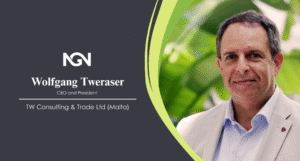Q: The hybrid work model is gaining popularity. What advantages does it bring?
Andrew Rasheed: This trend started emerging toward the end of the pandemic and has remained a preferred option for many organizations. I believe this model can be highly effective. By balancing a few days in the office with a few days of remote work, companies can maximize productivity. Employees benefit from improved energy levels, which ultimately leads to higher-quality output.
Q: You also have experience with flexible work models. How do these function, and why should more businesses consider adopting them?
Andrew Rasheed: Unlike hybrid or remote work, flexibility in this sense refers to when employees complete their tasks rather than where they work from. The key focus should always be on achieving high-quality results. Some employees find the traditional 9-to-5 schedule ideal, while others prefer different working hours that better align with their personal lives. Allowing flexibility helps employees manage traffic, childcare, or other responsibilities while maintaining efficiency at work.
Q: How has technology influenced human resources in recent years?
Andrew Rasheed: Over the past decade, technological advancements have significantly transformed HR operations. Many of our processes are now more streamlined and automated, freeing up time to focus on initiatives that were previously overlooked. Additionally, new digital tools have enhanced internal communication, improving workflow and collaboration across teams.
Q: Why do you believe companies should invest in their employees’ ongoing education?
Andrew Rasheed: Supporting employees in their professional growth directly benefits both them and the company. People often ask why we don’t simply hire candidates who already possess the necessary expertise. The reality is that many specialized certifications and training programs exist today, and no single person will have all of them upfront. Encouraging continuous learning keeps employees current with industry advancements, ensuring that their work remains competitive and innovative.
Q: What guidance would you offer to up-and-coming HR professionals? Where should they direct their efforts?
Andrew Rasheed: One of the most valuable lessons I’ve learned in HR is the importance of active listening. If the objective is to enhance the workplace environment, identifying existing challenges is essential. Employees themselves are the best sources of insight regarding these challenges. Engaging them in discussions fosters a sense of ownership and provides HR professionals with the information needed to drive meaningful improvements. The ultimate aim is to create a workplace where everyone feels they are working cohesively toward common goals.




